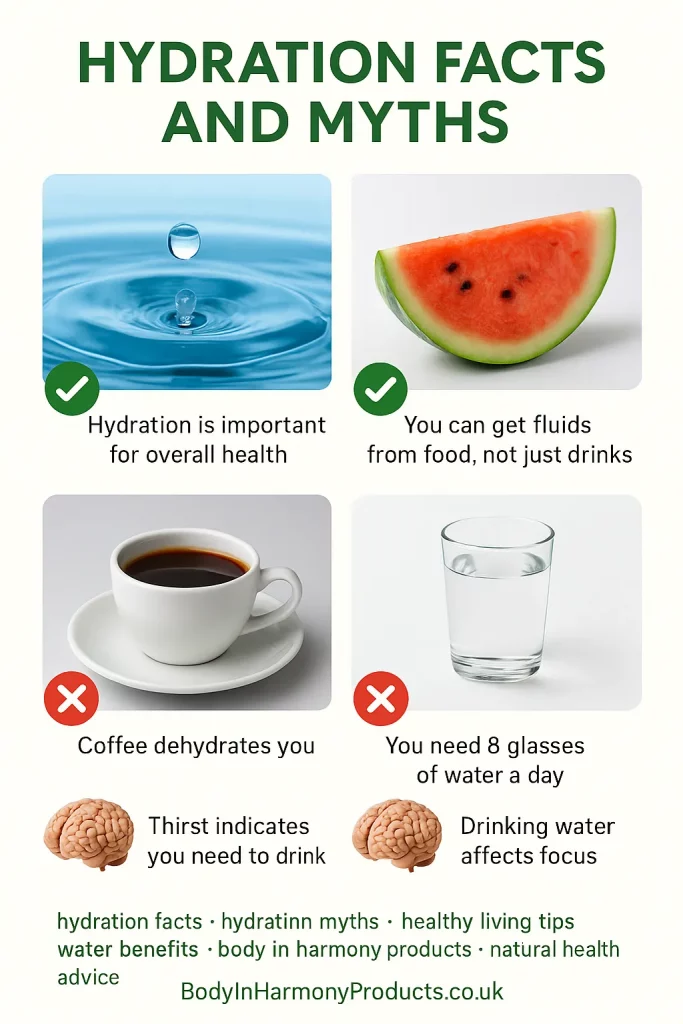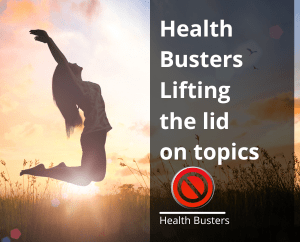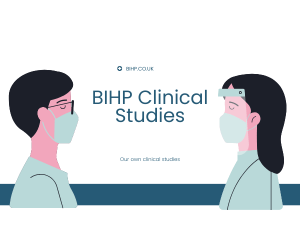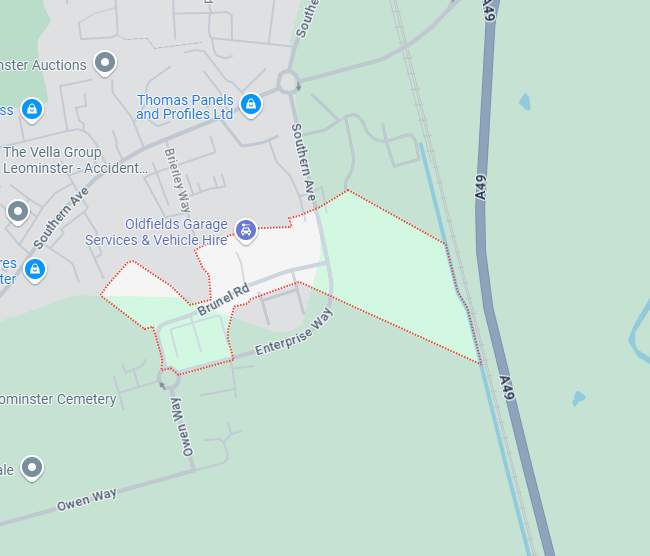Hydration Facts and Myths Everyone Gets Wrong
Hydration facts and myths are all over the internet. You’ve likely heard the one that says, “Drink eight glasses a day.” But this advice is not based on modern science. It actually came from outdated guidelines that never accounted for water in food. Somehow, the myth stuck — and today, people follow it without question.
The truth is, our bodies are smarter than we give them credit for. Thirst exists for a reason. It’s your body’s way of telling you that it needs fluid. Most healthy people can rely on thirst to guide their water intake. You don’t need to force litres of water down every day. Doing so may actually harm your health.
Hydration Facts and Myths About Overhydration
One of the most dangerous hydration myths is that “more is always better.” This simply isn’t true. Drinking too much water can cause a serious condition called hyponatraemia. This happens when the sodium levels in your blood become too diluted.
It’s most common among athletes and gym-goers who drink large amounts of water during exercise. Symptoms include nausea, headaches, confusion and, in severe cases, seizures. The kidneys can only handle about one litre of water per hour. If you drink more than that, your body struggles to keep up. Research shows.
Hydration facts and myths rarely mention this danger. That’s a big problem — especially as wellness culture keeps pushing “drink more” as a cure-all.
Your Kidneys Could Be Paying the Price
Hydration facts and myths often skip over the pressure that excess water puts on your kidneys. These organs work hard to maintain your fluid balance. When you drink too much, they are forced to process more fluid than necessary.
Over time, this can strain the kidneys and affect how well they filter waste. If you’re drinking excessive water every day “just in case,” it could do more harm than good. Ironically, people who drink loads of water to protect their kidneys may be doing the opposite.
The idea that water flushes out toxins is also misleading. Your kidneys and liver already do that job well — water only supports their function. But overloading them doesn’t make the process faster or better. In fact, it just increases their workload.
How Much Water Do You Really Need?
This is where hydration facts and myths become frustrating. The “right” amount of water is different for everyone. It depends on your age, activity level, diet, and the weather.
Most people don’t realise that food can provide up to 30% of daily fluid intake. Fruits, vegetables, and even cooked grains all contain water. You also get fluids from tea, milk, and juice. It’s not just about drinking plain water all day.
Instead of chasing a number, listen to your body. If you’re not thirsty, you probably don’t need to drink. If your urine is light yellow, you’re doing fine. Constantly clear urine could mean you’re overdoing it.
Let’s Debunk More Hydration Facts and Myths
Let’s bust another myth: “You’re always dehydrated before you feel thirsty.” Not true. Thirst kicks in when your body needs fluid — not after you’re already in danger. For most people, it’s a reliable signal.
Another false belief is that drinks like tea and coffee don’t count towards hydration. They do. Yes, they contain caffeine, but unless you’re drinking huge amounts, they still hydrate the body. Every bit of fluid counts.
Hydration facts and myths have turned water into a health obsession. But smart hydration is about balance, not excess.
Final Thoughts on Hydration Facts and Myths
Hydration is important — no one is denying that. But the idea that you must drink water constantly is flawed. Hydration facts and myths have led many to believe they’re always just one sip away from dehydration. But modern science says otherwise.
The truth? Your body knows what it needs. Trust your thirst, check your urine, and don’t fear skipping a glass now and then. Drinking too much can harm your kidneys, upset your body’s salt levels, and make you feel worse — not better.
So next time someone says “drink more water,” ask yourself — do you actually need it?
Hydration is often surrounded by mixed messages, which can make everyday choices feel confusing. Understanding how water intake fits naturally into daily life helps remove unnecessary worry and encourages balance rather than extremes. Connecting this topic to daily rituals for balance and calm reinforces the idea that hydration works best as a steady, mindful habit, supporting overall wellbeing through consistency and awareness rather than rigid rules.





